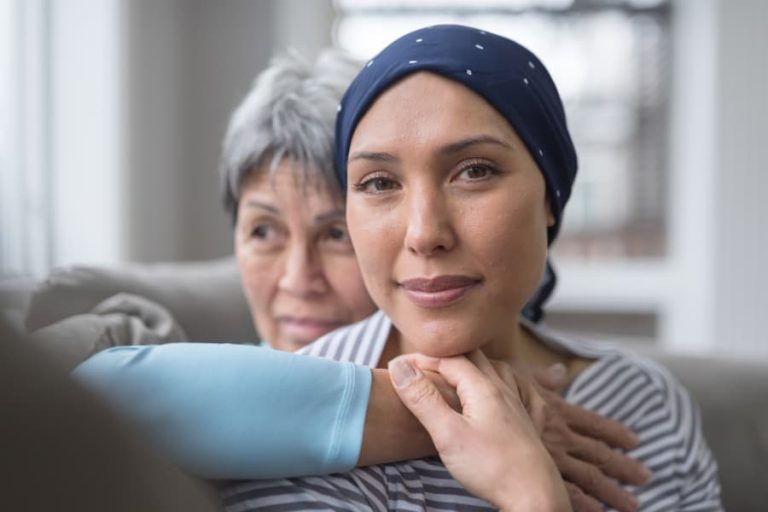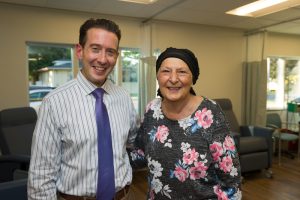
Early Signs of Inflammatory Breast Cancer
Regional Cancer Care Associates (RCCA) provides comprehensive treatment of cancer and blood disorders to patients throughout New Jersey, Connecticut, Maryland, and the Washington, DC, area.
HIPAA Alert: Potential Data Breach Learn More
Questions on Oncology, Hematology and/or Infusion Clinical Services due to COVID-19 Crisis – CALL 833-698-1623
Important Information for Our Patients Regarding the Coronavirus.
RCCA Providing Area Cancer Patients with Access to Care During Coronavirus Outbreak
RCCA Offering Patients Virtual Visits During Coronavirus Pandemic
Breast cancer takes several different forms, which are defined by types and subtypes. At Regional Cancer Care Associates, our doctors provide cutting-edge, comprehensive, and compassionate care to patients with breast cancer in New Jersey, Connecticut, Maryland, and the Washington, D.C., area. Let our experts help you understand the type of breast cancer you have and outline an individualized treatment plan designed to provide you with the best outcomes and quality of life.
Breast cancer usually starts in either the ductal cells or lobular cells of the breast. These cells are either located in a milk duct or in the glands in the breast that produce milk, which are called lobules. For example, the term ductal carcinoma in situ (DCIS) describes cancerous cells found in the lining of the breast milk duct that are non-invasive, meaning they have not spread beyond their point of origin. Meanwhile, the term lobular carcinoma in situ (LCIS) describes the presence of abnormal cells in the lobules of the breast, which at the time of diagnosis, have not spread outside the lobules of the breast. LCIS is not considered breast cancer, but its presence increases a woman’s risk for developing breast cancer. Without treatment, roughly 20% of women with LCIS will go on to develop breast cancer.
When breast cancer has spread from its point of origin to surrounding tissues, it is termed invasive. There are several types of invasive breast cancer:
Different types of breast cancer also can metastasize, or spread to other areas of the body. Further, successfully treated breast cancer can recur months or even many years after initial treatment.
There are a few breast cancers that are not classified as ductal or lobular. These include sarcomas, which start in mutated cells of connective tissue and are invasive. Sarcomas are found in muscles, blood vessels, fat, and other internal structures of the body. A type of breast cancer known as angiosarcoma begins in the lymph vessels and blood vessels of the breast.
Phyllodes tumor is a rare breast cancer tumor that is also found in the connective tissue of the breast. This may be caused by inherited conditions and usually affects women starting at age 40. Not all of these tumors are carcinoma, but treatment is always recommended.
Self-examination and screening tests, such as mammography, are critical to the early detection and effective treatment of breast cancer. Some of the most common signs and symptoms of breast cancer include:

While any woman – or man – can develop breast cancer, several factors can increase a woman’s risk for the disease. that. Physicians may recommend more frequent screenings based on the following:
When breast cancer is diagnosed, the expert medical team at Regional Cancer Care Associates will determine the type and stage of the disease and use this information to work with the patient to implement an individualized treatment plan that draws on the latest evidence and therapies. Treatment options may include one or more of the following:
If you are seeking expert cancer care in New Jersey, Connecticut, Maryland, or the Washington, D.C., area, consult with a medical oncologist at one of Regional Cancer Care Associates’ 20+ conveniently located, community-based care centers. Find a nearby location or contact us to make an appointment to discuss treatment options.
Breast cancer patients can seek the most comprehensive, patient-centered care that the area has to offer at Regional Cancer Care Associates. Our network of highly experienced doctors works together to deliver the care and support you need for all aspects of your life. Call your local RCCA office to learn more about breast cancer or to schedule an appointment for a consultation today.

Regional Cancer Care Associates (RCCA) provides comprehensive treatment of cancer and blood disorders to patients throughout New Jersey, Connecticut, Maryland, and the Washington, DC, area.

When people think of breast cancer, they generally think of it affecting women. However, in rare circumstances, breast cancer can affect men, most commonly in

First diagnosed with breast cancer in 1992, she has persevered in her battle against the disease for more than 30 years.
When standard cancer treatments aren’t providing the results you want, clinical trials may offer hope. Our physicians use clinical trials to study new treatments, helping transform cancer care for the better. You can enroll in a clinical trial to try groundbreaking treatment plans at zero cost to you.

Regional Cancer Care Associates is one of fewer than 200 medical practices in the country selected to participate in the Oncology Care Model (OCM); a recent Medicare initiative aimed at improving care coordination and access to and quality of care for Medicare beneficiaries undergoing chemotherapy treatment.